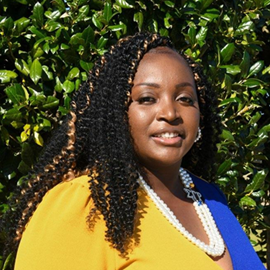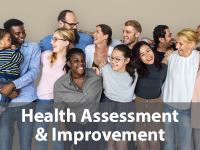Supporting Health Initiatives & Nurturing Equity (SHINE) Program

Improving Health is Our Priority
North Central Health District (NCHD) received funding from the Centers for Disease Control and Prevention (CDC) for the second year in the five-year REACH cooperative agreement. The REACH funding allows NCHD to implement the SHINE program with the goal of preventing chronic diseases and improving health in Baldwin, Hancock, and Washington Counties.
Partner With SHINE
SHINE is always looking to work with new partners across our service area. Citizens, organizations, faith-based groups, businesses and other agencies within Baldwin, Hancock and Washington Counties are encouraged to partner with us. Interested parties should email SHINE’s Program Manager or use the registration form.
Contact SHINE
SHINE Main Office Lines: 706-444-2200 or 478-776-0093
| Title | Name | Phone Number | |
| SHINE Program Manager | Alicia Wright | alicia.wright4@dph.ga.gov | 478-550-7550 |
| Administrative Assistant | Williesha Hatcher | williesha.hatcher@dph.ga.gov | 478-832-7546 |
| Nutrition Coordinator | Mankesia Solomon | mankesia.solomon@dph.ga.gov | 478-832-7573 |
| ECE Coordinator | Kristine Garner | kristine.garner1@dph.ga.gov | 478-538-8000 |
| Active Living Coordinator | Morgan Scott | morgan.scott@dph.ga.gov | 478-245-7803 |
| Vaccine Promotion Coordinator | Vacant | 478-952-0921 | |
| Communications Specialist | Hamdy Inusah | hamdy.inusah@dph.ga.gov | 478-303-0449 |
| District Program Manager | Karen Ebey-Tessendorf | karen.ebey-tessendorf@dph.ga.gov | 478-751-6036 |
Meet the SHINE Team
 |
Alicia Wright is the Program Manager for the SHINE program where she collaborates with the CDC’s Division of Nutrition, Physical Activity, and Obesity (DNPAO), county health departments, community coalitions, universities, city & county governments, faith-based organizations, and non-profits. Previously, Alicia worked as NCHD’s Health Equity Program Coordinator, Middle Georgia Community Food Bank’s Agency Relations Manager, and Macon-Bibb County Health Department’s Health Education Supervisor, Chronic Disease Health Educator, & Teen Health Educator. She earned her Bachelor of Science in Biology from Georgia Southwestern State University in Americus, GA, and her Master of Public Health from Walden University in Minnesota, MN. Alicia enjoys traveling, cooking, watching sports, and most importantly spending time with family and friends. |
 |
Williesha Hatcher is the Administrative Assistant with the SHINE Program, having previously worked for NCHD under the REACH Cooperative Grant as the Administrative Assistant. Ms. Hatcher works closely with all staff to ensure that all their needs are met, and she has spent the last year perfecting her craft in her role. She obtained an Associate’s degree in General Studies from Georgia Military College and is currently working on obtaining a Bachelor’s degree in Health Administration at The University of Phoenix. In her spare time, she spends time with her 7-year-old son; taking him to recreational basketball games and doing lots of adventurous things as he keeps her busy. |
 |
Mankesia Solomon is the Nutrition Coordinator for the SHINE Program. Previously, Mankesia worked as a customer service representative for the NCHD Women, Infants, and Children (WIC), where she provided pre- and post-natal moms, infants, and young children under five access to healthy food, breastfeeding support, and encouragement. She has also worked as a public health analyst for The Mahogany Group where she developed and managed multiple projects, conducted public health research, workforce development, etc. Mankesia has a Bachelor of Science in Public Health from Georgia College and State University and will graduate in May 2024 with a Master of Public Health from Virginia Union University. Mankesia enjoys reading, playing video games, and spending quality time with her family. |
 |
Morgan Scott is the Active Living Coordinator for the SHINE Program. Her role is to provide support to develop/adapt new and improved plans and policies that enhance everyday opportunities for physical activity. She obtained two degrees from Georgia College and State University, a Bachelor of Science in Public Health and a Master of Science in Health and Human Performance with a concentration in Health Promotion. Prior to joining NCHD, she worked in the Public Health Associate Program (PHAP) with the Centers for Disease Control and Prevention serving as the Project Specialist working on quality improvement with the Northwest Portland Area Indian Health Board. Morgan enjoys shopping, creating her own natural haircare growth oil, and going walking. |
 |
Hamdy Inusah is the Communications Specialist for the SHINE program. Prior to joining NCHD and SHINE, she served as the Communications and Marketing Assistant for Duke University’s Global Women’s Health Technologies, a global health lab that aspires to making cancer diagnosis, prevention, and treatment more accessible and more effective for women worldwide. She assisted in the planning and coordination of events, social media content, and stakeholder correspondence for the lab. During this time, she also graduated from Duke University with a Bachelor of Science in Biology, Global Health, and Medical Sociology. In her free time, Hamdy enjoys traveling, cooking, and attending concerts. |
 |
Karen Ebey-Tessendorf is NCHD’s District Program Manager and serves as Project Director for the SHINE Program. Karen started with NCHD in 2003 as Emergency Preparedness Director and transitioned to District Program Manager in 2013. Ms. Ebey-Tessendorf has a Bachelor of Arts in Chemistry from Wheaton College in Wheaton, IL and a Master of Public Health from the University of North Carolina at Chapel Hill. She has more than ten years of international experience in Haiti, South Africa, Sierra Leone, and Mozambique. She worked for private voluntary agencies, international organizations, and the United States Agency for International Development as a health educator, community organizer, program coordinator, and administrator. Her areas of expertise include public health education, community development, and program management. |
CDC’s REACH Program Funding
The Centers for Disease Control and Prevention selected NCHD in 2023 as a REACH grant recipient. NCHD is one of 50 organizations across 32 states and the District of Columbia to receive REACH funding for 2023-2028. The REACH Program focuses on improving health and preventing chronic diseases in communities nationwide. REACH facilitates access to healthier foods and physical activity for those at highest risk, or burden, of chronic diseases. With support from the CDC REACH program, SHINE’s goal is to improve health where people live, learn, work and play in Baldwin, Hancock and Washington Counties.
What is the REACH Grant?
The REACH grant is awarded by CDC to programs and organizations working to improve health for those communities with the highest risk, or burden, of chronic diseases. Grant recipients plan and execute local programs to implement evidence-based strategies as described below.
REACH & SHINE
As one of 50 REACH recipients, NCHD will implement these proven public health strategies in Baldwin, Hancock, and Washington Counties:
- Healthy food choices —promoting food service and nutrition guidelines, expanding fruit and vegetable voucher incentive and/or produce prescription programs.
- Safe and accessible physical activity—connecting pedestrian, bicycle, or transit transportation networks to everyday destinations.
- Early care and education (ECE) settings—improving nutrition and physical activity and increasing breastfeeding.
- Adult vaccines—increasing awareness, confidence, demand, and access to routinely recommended adult vaccines.
SHINE Strategies
Active Living
The Active Living portion of the SHINE Program will implement these proven public health strategies:
- Access to safe places for physical activity
- Assessing concerns related to increasing physical activity through community design by engaging community organizations and experts who can address these concerns.
- Assessing access to parks, trails, greenways, and recreational facilities and working with community coalitions to create or improve safe access to these locations.
- Establishing partnerships and collaborations
- Collaborating with partners to put into action new or improved plans and policies, activity-friendly districts, and/or other activities to create activity-friendly communities.
- Working with partners to update zoning codes to include activity friendly design.
- Working with partners to establish or update comprehensive plans.
- Establishing, expanding, or participating in a cross-sectoral coalition including people affected by health disparities in community design for physical activity and the public health, transportation, community planning, and parks and recreation sectors.
- Ensuring bicycle routes, transit transportation, and sidewalks to everyday destinations
- Roadways without sidewalks are more than twice as likely to have pedestrian crashes as sites with sidewalks on both sides of the street.
- Reliable transportation is needed for rural residents to access healthcare services, consumer services, employment and educational opportunities, and social services.
- Bike paths ensure the safety of cyclists, promote active lifestyles, boost local economies, and contribute to a greener environment.
The Physical Activity Strategy creates or enhances access to places for physical activity and provides information to encourage their use. Places can include public parks and trails, fitness and recreational facilities, schools and universities, malls, senior centers, and worksites. Information may involve training, incentives, and teaching about healthy behaviors. Worksites, school districts, early childhood and education (ECE) facilities, organizations, and community coalitions can improve access to safe places to be physically active for young people and adults.
The SHINE Program will work closely with the local health department, other community partners, and existing coalitions.
Please feel free to contact me with questions, concerns, suggestions, or further discussion. If you are interested in becoming a SHINE partner, visit our website at NCHD52.org/SHINE.
Morgan Scott
Active Living Coordinator/SHINE Program
Cell 478-245-7803/morgan.scott@dph.ga.gov
Early Childhood Education
The Early Childhood Education (ECE) portion of the SHINE Program will implement these proven public health strategies:
- Implement or strengthen policies that support breastfeeding.
- Georgia’s average breastfeeding initiation rate is 83%, while Baldwin county’s average is 64.7%, Hancock County is 46.8% and Washington county is 58.7%.
- Certain factors make a difference in whether and how long babies are breastfed, including Education and encouragement, policies and support in the workplace and childcare centers, and access to community support.
- Nutrition and Physical Activity
- Young children who are overweight in kindergarten are 4 times more likely to have obesity by 8th grade than those who are not overweight in kindergarten.
- Starting healthy habits for physical activity and nutrition in early childhood influences activity levels as children grow.
- Farm to ECE
- Farm to early childhood education supports cognitive, physical and social-emotional development, school readiness and lifelong healthy eating.
- Farm to early care and education does not just impact the children but also their families and parents by developing lifelong eating habits, nutrition education and exposure to local foods.
We know that the ECE setting can directly influence what children eat and drink and how active they are. This builds the foundation for healthy habits.
The SHINE Program will work closely with the local health department, other community partners, and existing coalitions.
Please feel free to contact me with questions, concerns, suggestions, or further discussion. If you are interested in becoming a SHINE partner, visit our website at NCHD52.org/SHINE.
Nutrition
The Nutrition portion of the SHINE Program will implement these proven public health strategies:
- Promote food service & nutrition guidelines
- Applying food service or nutrition guidelinesin food banks and pantries can improve healthy food access where foods and beverages are sold, served, and distributed.
- Healthy eating patterns help people live longer, strengthen their immune systems, and have fewer chronic diseases
- Only 1 in 10 US adults eats enough fruits and vegetables every day.
- Among adolescents, 7% met the recommendation for fruits, while only 2% met the recommendation for vegetables
- Expansion of fruit and vegetable voucher programs
- Improve both affordability and access to healthier food
- Engage community members, food systems representatives, and other experts to ensure that initiatives promote easier access to fruits and vegetables in the food system
- Increase market demand for fruits and vegetables, which can increase sales for local farmers, food hubs, aggregators, distributors, and retailers
- Expansion of produce prescription programs
- Support policies that increase participation in incentive or prescription initiatives
- Improves health outcomes by reducing financial burden and promoting the consumption of nutrient-rich foods
- Increased fruit and vegetable consumption can reduce the progression of chronic disease and is associated with lowered risk of cardiovascular disease, cancer, stroke, and premature death
The goal is to get as much community support as needed to help improve access to healthy fruits and vegetables, promote food service and nutrition guidelines, and enhance the already available incentives in local communities.
The SHINE Program will work closely with the local health department, other community partners, and existing coalitions.
Please feel free to contact me with questions, concerns, suggestions, or further discussion. If you are interested in becoming a SHINE partner, visit our website at NCHD52.org/SHINE.
Mankesia Brown
Nutrition Coordinator/SHINE Program
Cell 478-832-7573/Mankesia.brown2@dph.ga.gov
Vaccine Promotion
The Vaccine Promotion portion of the SHINE Program will implement these proven public health strategies:
- Increase awareness, confidence, demand, and access for all routinely recommended adult vaccines.
- Educate and empower trusted voices in the communities.
- Identify and train local vaccine promotion ambassadors to share information in their communities.
- Enhance provider partnerships and increase opportunities for vaccines.
- Local Health Departments, CORE, Drug Stores
- Mobile Vaccine clinics
Findings show that one of the primary reasons people get vaccinated is to protect themselves and to protect their loved ones. SHINE will work to increase access to vaccines and vaccine education to all adults including uninsured and under insured adults.
The SHINE Program will work closely with the local health department, other community partners, and existing coalitions.
If you are interested in becoming a SHINE partner, visit our website at NCHD52.org/SHINE.
Learn More:


 Contact Us
Contact Us Locations
Locations Job Openings at North Central Health District
Job Openings at North Central Health District Internships
Internships Board of Health
Board of Health Cost and Insurance
Cost and Insurance Privacy Policy
Privacy Policy Teens & Adults
Teens & Adults For Children
For Children Other Programs
Other Programs County Environmental Health Offices
County Environmental Health Offices Chemical Hazards
Chemical Hazards Tourist Accommodations
Tourist Accommodations Food Service
Food Service Rabies Control
Rabies Control Lead Poisoning Prevention
Lead Poisoning Prevention Body Art
Body Art Land Use
Land Use Swimming Pool Program
Swimming Pool Program Water Testing for Private Wells
Water Testing for Private Wells Environmental Health Complaints
Environmental Health Complaints Georgia Food Recall Alerts
Georgia Food Recall Alerts Personal & Family Preparedness
Personal & Family Preparedness Emergency Preparedness for Functional & Access Needs
Emergency Preparedness for Functional & Access Needs Severe Weather Preparedness
Severe Weather Preparedness Emergency Preparedness Training
Emergency Preparedness Training Medical Reserve Corps
Medical Reserve Corps Regional Healthcare Coalitions
Regional Healthcare Coalitions Strategic National Stockpile/Medical Countermeasures
Strategic National Stockpile/Medical Countermeasures


 العربية
العربية 简体中文
简体中文 繁體中文
繁體中文 Français
Français Deutsch
Deutsch हिन्दी
हिन्दी 한국어
한국어 Português
Português ਪੰਜਾਬੀ
ਪੰਜਾਬੀ Español
Español